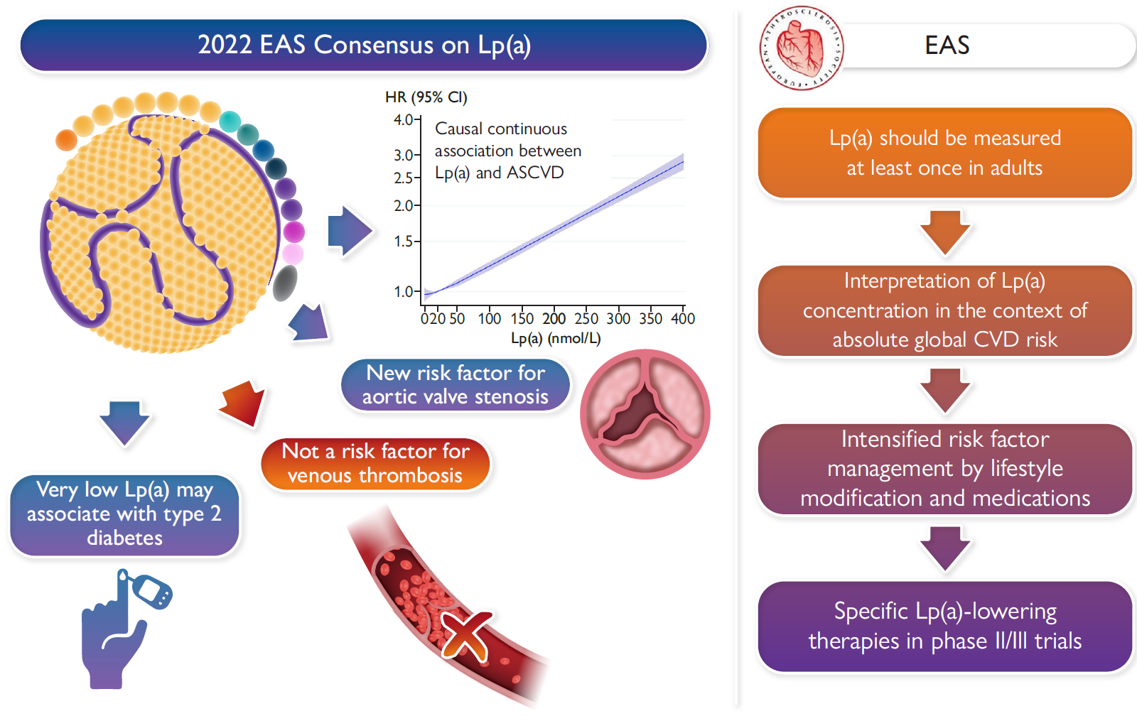Lipoprotein(a) in atherosclerotic cardiovascular disease and aortic stenosis: a European Atherosclerosis Society consensus statement
European Heart Journal, 2022. https://doi.org/10.1093/eurheartj/ehac361
More than a decade after first highlighting lipoprotein(a) [Lp(a)], the European Atherosclerosis Society (EAS) has published an updated consensus statement. This 2022 statement brings together extensive evidence for elevated Lp(a) concentration as a causal risk factor for atherosclerotic cardiovascular disease (ASCVD), irrespective of gender and ethnicity, as well as for aortic valve stenosis, and provides practical guidance on testing and treating high Lp(a) levels.

Authors:
Consensus Co-chairs:
Florian Kronenberg, Samia Mora, Erik S.G. Stroes
Panel members:
Brian A. Ference, Benoit J. Arsenault, Lars Berglund, Marc R. Dweck, Marlys Koschinsky, Gilles Lambert, François Mach, Catherine J. McNeal, Patrick M. Moriarty, Pradeep Natarajan, Børge G. Nordestgaard, Klaus G. Parhofer, Salim S. Virani, Arnold von Eckardstein, Gerald F. Watts, Jane K. Stock
Consensus Coordinators:
Kausik K. Ray, Lale S. Tokgözoğlu, Alberico L. Catapano
Hear from the authors
EAS Consensus Coordinator Prof Alberico L. Catapano, Milan, Italy, introduces the Consensus paper.
Panel Co-chair Prof Florian Kronenberg, Innsbruck, Austria, talks about the epidemiological and genetic findings in the paper.
Panel Co-chair Prof Samia Mora, Harvard, USA, shares the paper’s key messages on very low lipoprotein(a) levels and diabetes risk.
Panel Co-chair Prof Erik Stroes, Amsterdam, The Netherlands, discusses what are the clinical implications for measuring and managing lipoprotein(a).
Lp(a) Clinical Guidance
Lp(a) Clinical Guidance is a new website, created by EAS Consensus team and launched in connection with the EAS Consensus position paper on Lp(a). It is intended for use by the general public, to help them understand their Lp(a) levels, and by clinicians, to help them better manage their patients with elevated Lp(a).
Lp(a) Clinical Guidance will help you determine how much your Lp(a) level increases your risk of having a heart attack or stroke and provide you with specific guidance about what you can do to lower your risk if your Lp(a) level is elevated.